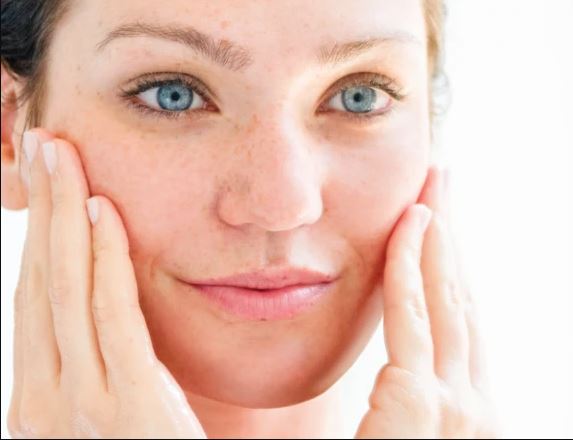
With the winter months upon us, dryness tends to increase as the air zaps nourishment from our skin. While all skin types should be using a moisturizer year-around, not all moisturizers are created equal. Depending on your skin type, the wrong moisturizer can feel heavy, uncomfortable and even cause blemishes on the skin. As we prepare for the colder air, we want to help you understand what to look for in a moisturizer and the appropriate way to use it in your routine.
Why Is A Moisturizer Important?
Our skin naturally produces oil for one main function: to protect itself. A healthy amount of oil production maintains a healthy skin barrier, which is responsible for keeping the good stuff in and the bad stuff out. When we strip our skin of its natural oils, or when our skin underproduces oil, it can result in dryness, flaking, irritation and premature aging. Far too often our skin’s moisture levels are unbalanced, resulting in dryness or excess oil production.
Applying a moisturizer is one of the easiest ways to nourish our skin with powerful ingredients to address skin concerns such as:
- Lines and wrinkles
- Breakouts
- Discoloration and hyperpigmentation
More importantly, moisturizers balance the skin’s natural oil production – which is often disrupted by improper product usage, hormones or environmental aggressors.
What If I Have Oily Skin?
When working with oily clients, it is often discovered that they are skipping the moisturizing step in their routine. While it seems unnecessary to apply a moisturizer to oily skin, using the right product can help balance oil production.
Oily skin types tend to use drying, mattifying and stripping products to absorb the excess oil on their skin. However, the result of these products can create a counter effect. When we strip our skin of its necessary oil, it begins to overproduce to compensate, in turn making oil production increase. Aside from using the correct oil-controlling products, applying the correct moisturizer will regulate the skin’s oil production, prevent dehydration and support a shine-free and balanced complexion.
Ingredients To Invest In
While the term “moisturizer” is often used to describe a product, moisture itself is the element of oil and hydration is the element of water. Moisturizers that are oil-free contain hydrating ingredients that are better suited for oily skin types, while traditional moisturizers contain oils to nourish the skin. Moisturizers can range in thickness based on their oil content as well as the types of oils used in the product.

- For oily skin types, look for moisturizers that contain ingredients such as Hyaluronic Acid and Aloe Vera, and lightweight oils such as Safflower and Jojoba Oil. Another incredible ingredient to leverage in a night-time moisturizer is Retinol, as it supports a healthy cell turnover which further balances oil production.
- For drier skin types, ingredients such as Shea Butter and Rosehip provide richer textures and nourishment to the skin. Vitamin C also defends the skin from external aggressors, supporting a strong skin barrier to lock in moisture.
Ingredients To Avoid
Finding the right ingredients in your moisturizer is important, but knowing which to avoid can further define the perfect moisturizer for your skin. While there are many great ingredients available, there are a few that can clog the pores, cause dryness or even further irritation.
Drying alcohols such as isopropyl and denatured alcohols are the first ingredients to avoid, as they will strip the skin and prevent your products from moisturizing the skin. Additionally, ingredients such as mineral oil and petroleum provide a layer on the skin that feels nourishing, but instead, sits on top of the skin, clogs pores, and can cause the skin’s natural oil production to slow, resulting in more dryness.
Moisturizers By Skin Type
Picking the perfect moisturizer can be tough, but at InstaNatural we believe in creating products for different skin types, as well as customized routines that provide real results. Check out the below recommendations based on your skin type:
Moisturizer Recommendations







